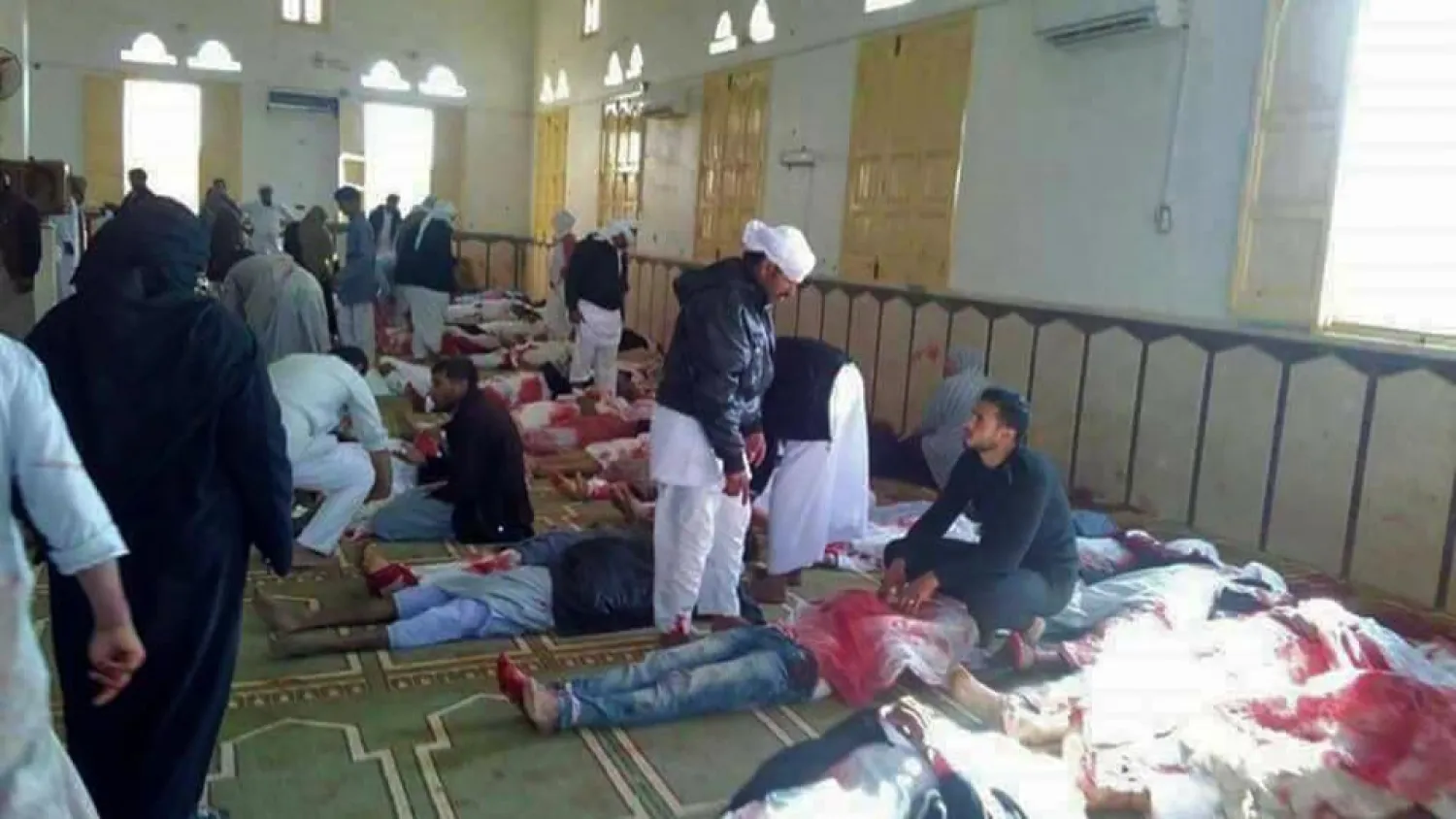The terrorist attack on al-Rawda mosque on Friday left a record number of people dead, making it the worst in Egypt’s war against terror.
A preliminary death toll of 300 people has so far been recorded, making it the greatest loss of life in a terrorism attack in Egypt’s history.
According to figures and observers, the number of people killed in Friday’s massacre in the town of Bir al-Abd, 40 kilometers from the capital of North Sinai, el-Arish, exceeded the number of people killed in the attacks that coincided with Egypt’s celebrations of the July 23 revolution in 2005.
Back then, a series of simultaneous "terrorist" attacks, using hand grenades and booby traps, targeted the Sharm el-Sheikh Red Sea resort, killing 88 people and injuring 150 others.
At the time, the Sharm el-Sheikh attacks were even bloodier than Luxor Massacre, which took place on November 7, 1997 and was also one of the most violent terrorist incidents.
During the 1997 Massacre, gunmen affiliated with al-Gama'a al-Islamiyya attacked Deir el-Bahari temple in Luxor, killing 62 tourists (four Egyptians, 36 Swiss, 10 Japanese, six Britons, four Germans, a Colombian and a Frenchman) and injuring 24.
Terrorist attacks in Egypt intensified after the ouster of President Mohammed Morsi of the Muslim Brotherhood. The new wave of attacks targeted places of worship, the police and armed forces in northern Sinai and some other Egyptian governorates.
The Karam al-Qawadis ambush remains the bloodiest and most infamous attack. Thirty-five policemen and soldiers were killed and 26 were injured in a terrorist attack on the ambush south of Sheikh Zweid on April 24, 2014.
On January 29, 2015, a number of armed men targeted the 101 Battalion, the Armed Forces Hotel and the police lounge, killing 30 people and injuring 56. The ISIS terrorist group claimed responsibility for the attack.
Ahmed Kamal al-Beheiri, a researcher of Islamic groups at the Al-Ahram Center for Political and Strategic Studies, said that 2015 witnessed the largest number of terrorist attacks.
In a previous study, Beheiri pointed out that the number of terrorist attacks in the years 2014, 2015 and 2016 amounted to 1,165, the highest percentage of which was in 2015, yet none of them were as bloody as Friday’s al-Rawda mosque attack.
Kamal Habib, a specialist in the affairs of Islamic groups, told Asharq Al-Awsat that the Rawda mosque attack was the most violent in Egypt’s history, noting that the confrontation with terrorist entities over the past years combined has not left this many victims.
He compared the incident to targeting Shi’ite mosques in Iraq and Kuwait.
"This is a dangerous development which must be met with new precautionary arrangements and measures," he said.









